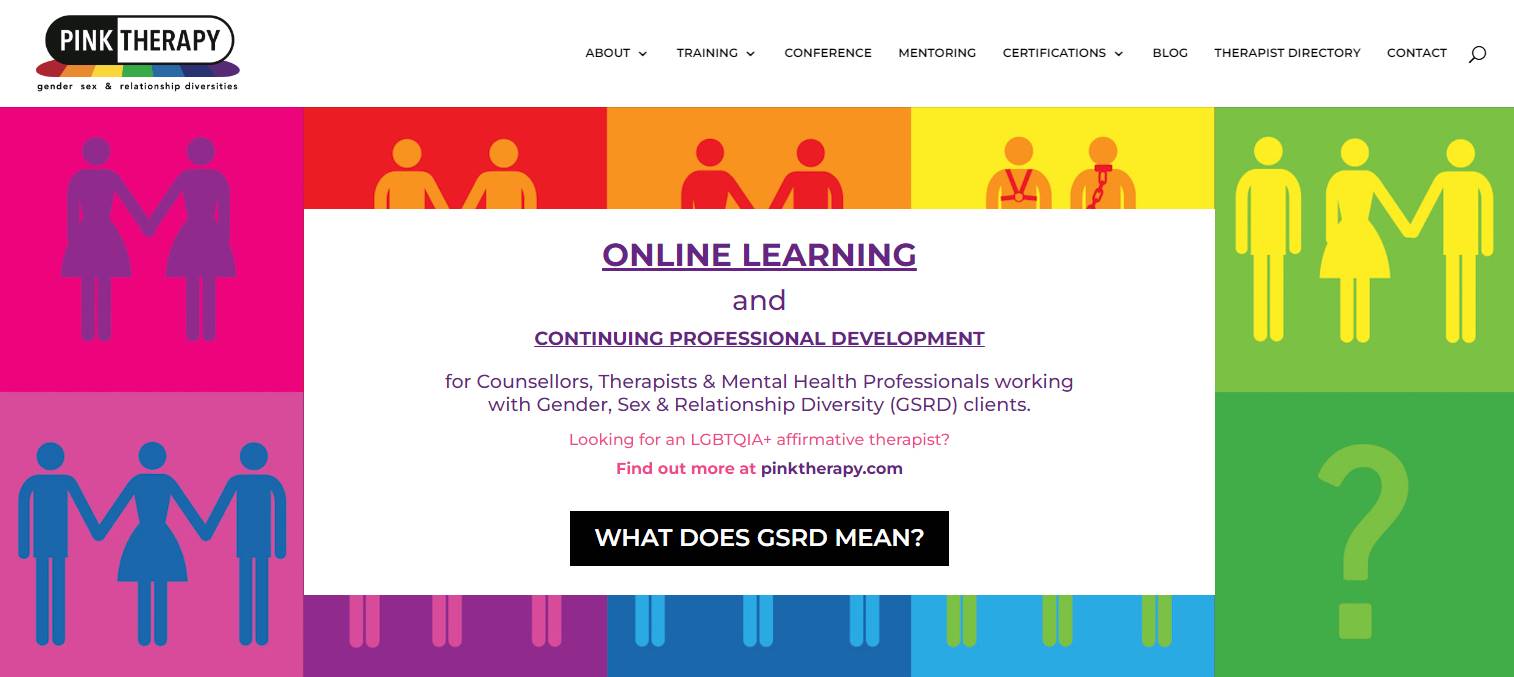Are kinky people nuts? Well, until 2013, not being vanilla was enough to get you a mental health diagnosis!
Have you heard of the “Diagnostic and Statistical Manual of Mental Disorders,” aka the DSM? It’s the American Psychiatric Association’s mental disorders handbook. It’s used as a bible in the mental health profession across the U.S. and elsewhere.
For many years, the DSM listed enjoying BDSM sex as grounds for an automatic diagnosis of what’s called a paraphilic disorder! This only changed when DSM-5 was published in 2013.
Unfortunately, my profession hasn’t kept up with the times. Many people have weird ideas about the kinky among us, and therapists are no exception. Assumptions abound, including whether we’re kinky because we were abused as children or we’re likely to have been diagnosed with a mental health problem.
New Acceptance of Kinky Sex
The great news for today’s kinksters is that there is more and more research emerging that refutes these outdated ideas. Compared with the general population, we’re no more or less likely to have experienced childhood abuse. Additionally, we do not struggle with our mental health (Richters et al., 2008; Wismeijer & van Assen, 2013).
However, many therapists were trained before 2013, when kink was officially a pathology. Even now, most therapist training programs don’t cover kink at all. As such, most professionals in this field haven’t done any kink-positive training on working with BDSM clients. This is why partnering with a kink-positive counselor is key.

Photo: Kamaji Ogino via Pexels
Therapists Who Don’t Understand Kink Are a Problem
Therapists who aren’t kink-affirming can cause harm to kinky clients. And they can fail to support them in several ways effectively.
Ways Anti-Kink Therapists Hurt Clients:
- Treating BDSM as a problem that needs to be addressed—some even require clients to cease practicing kink in order to access therapy
- Avoiding issues relating to the client’s BDSM practice because they’re uncomfortable talking about it
- Putting the onus on the client to educate them about kink and making the client pay three times. For instance, the session fee, in-session kink-awareness training, and loss of precious session time focusing on their needs
- Not understanding or not being able to offer information and support about harm reduction frameworks
- Amplifying shame and minority stress
If this doesn’t sound fair, that’s because it isn’t. It’s not just unfair; it’s unethical.
What is Minority Stress?
This refers to the pressures experienced by those who are part of a minority group, the chronically high stress this causes, and the poor mental and physical health outcomes that can result.
Minority stress affects people whose sexualities are stigmatized because it’s impossible to avoid situations where they have to choose between the risk of exposing themselves to discrimination or, ultimately living in the closet. Many kinky people internalize biases and stigmas, which make them ashamed of desires that would otherwise bring them joy and pleasure.

Photo: Alycia Fung via Pexels
Kinky Clients Need Kink-Positive Therapists
Clients share things with their therapist that may be painful and private—they may even talk about things they have never told anyone else. Therapy requires the client to be vulnerable—it’s an exercise in trust. It is assumed that the sex practitioner is competent and will be able to help them, won’t judge them, and will be kind.
So when a kinky client comes to therapy, they need a therapist who will not only not shame them but will affirm their whole selves, including their sexuality. The therapist shouldn’t be afraid to talk about kink sex and any issues related to it. Additionally, they shouldn’t wrongly attribute unrelated problems to BDSM or, even worse, treat the client as though there’s something wrong with them because they’re kinky.
But the lack of training and awareness around kink means that there just aren’t that many of us around.
Why I Believe in Kink-Positive Therapy
I’m a kink-positive counselor because kink is part of a broad spectrum of healthy human sexuality, not a pathology. Kinky folk deserve effective and compassionate counseling without prejudice or discrimination, no matter if their issues are related to sex or not. And because also, as a kinky person myself, I have skin in this game!
If you’d like your therapist or counselor to be more kink-competent, you could encourage them to read these guidelines on working with clients involved in kink or to seek further training on sexual and relationship diversity from Pink Therapy.

If you’d like to know more about how to spot a genuinely kink-affirming therapist, you can read my suggestions.










